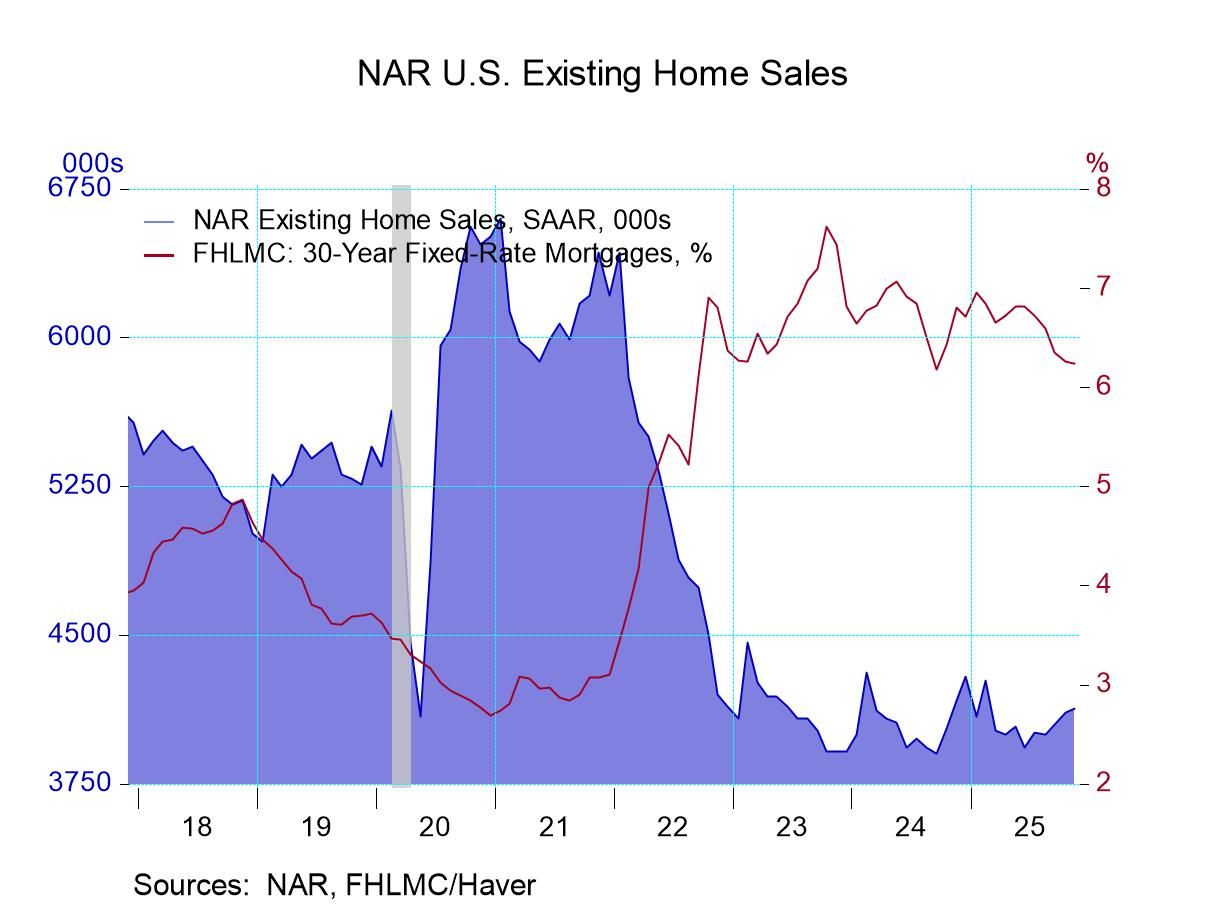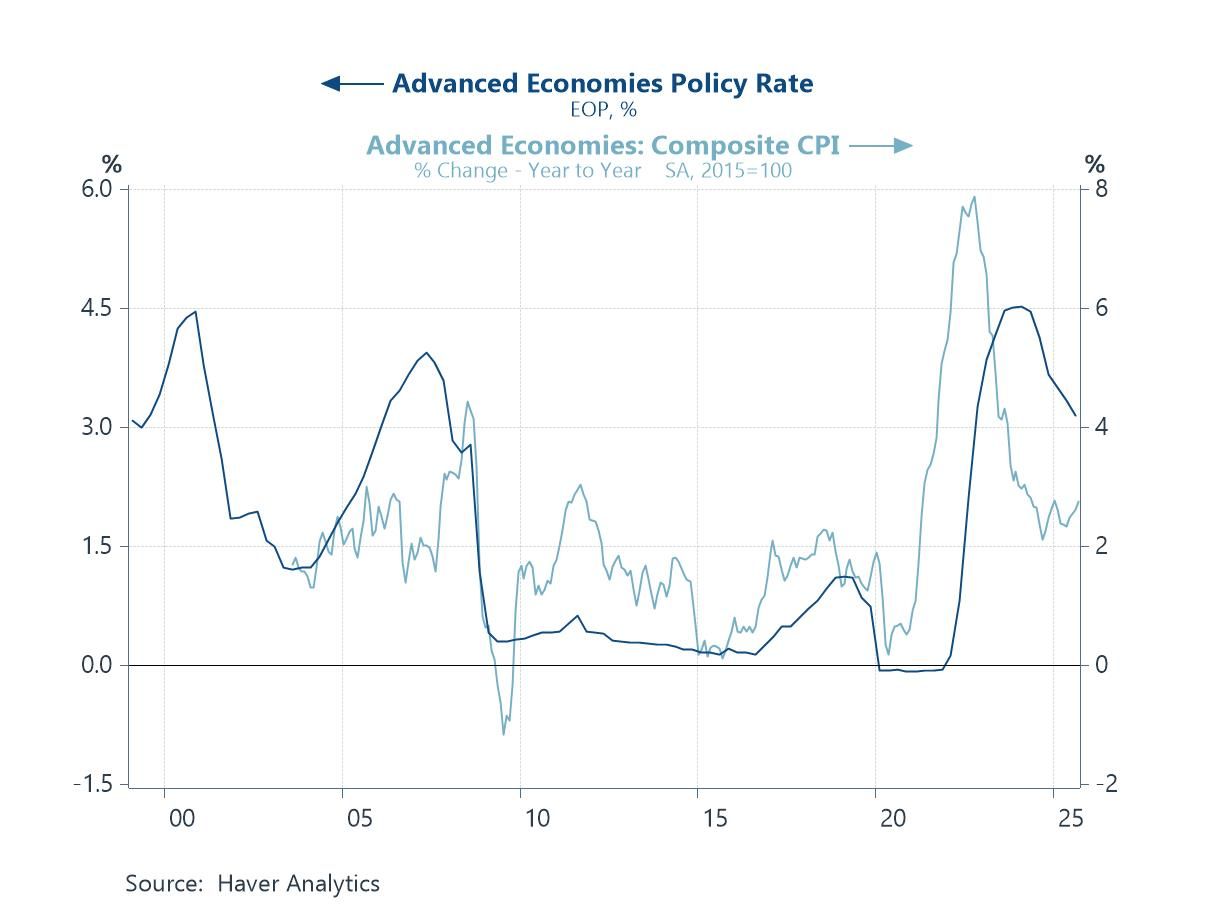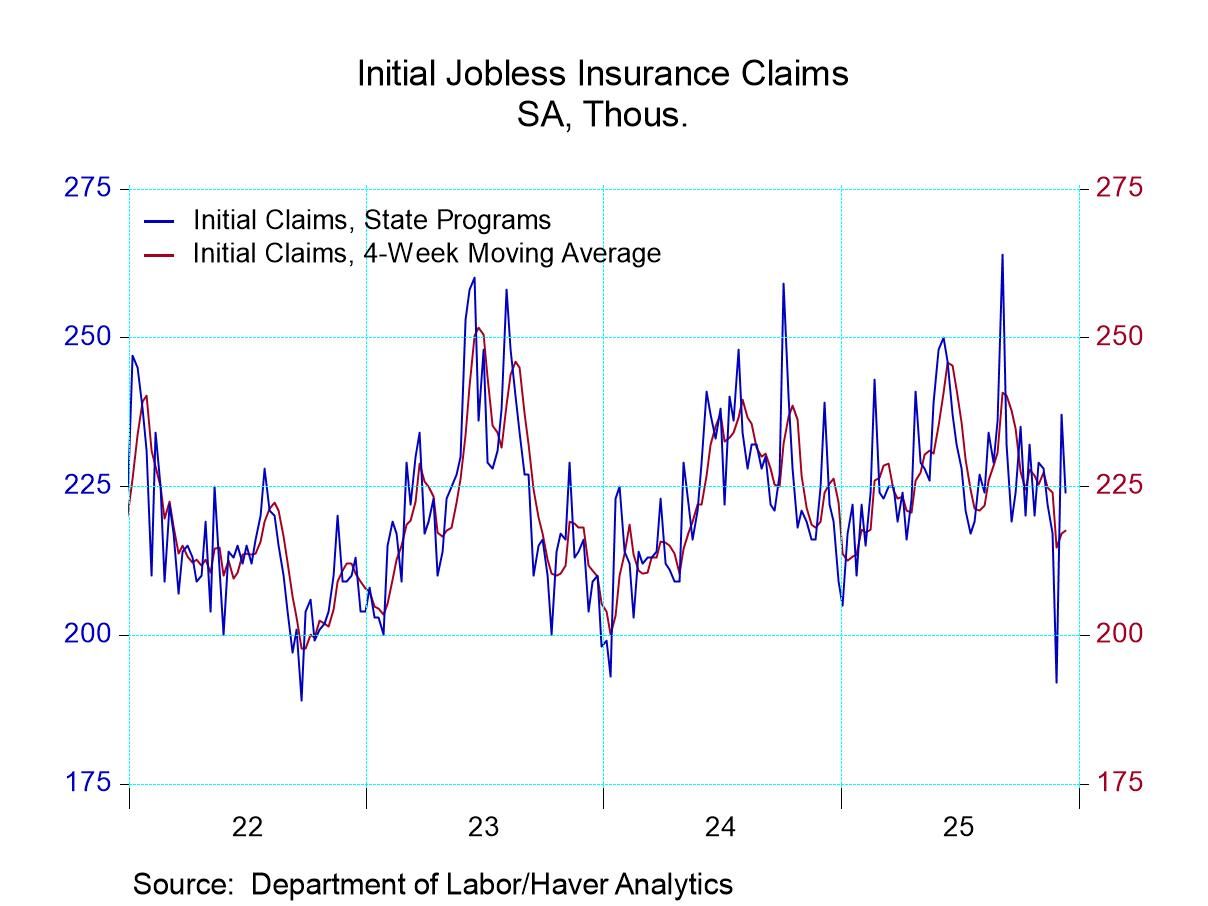U.S. Chicago Business Barometer Is Little Changed in August
by:Tom Moeller
|in:Economy in Brief
Summary
- Production & new orders improve moderately; inventories surge.
- Employment weakens & supplier delivery speeds quicken.
- Price index holds steady.


In the Midwest, business activity in August remained at roughly the same level as in July. The ISM-Chicago Purchasing Managers Business Barometer edged up to 52.2 in August after falling to 52.1 in July. It was near the lowest level since August 2020 and remained below the peak of 73.3 in May 2021. An index level of 52.9 had been expected in the Action Economics Forecast Survey.
Haver Analytics constructs an ISM-Adjusted Chicago Business Barometer with methodology similar to the ISM Composite Index to be released tomorrow. This measure rose to 56.4 this month after falling to a two-year low of 52.7 in July.
Moving higher, the production index rose to 54.9 in August and recaptured most of the July decline to 48.2. Still, it remained below the 70.0 high registered in April of last year. A greatly improved 34% (NSA) of respondents reported higher production but a modestly higher 24% reported a decline. The new orders index also rose moderately to 48.9 after falling to 44.5 in July. A higher 27% of respondents (NSA) reported increased orders while a lessened 34% reported a decrease. The order backlog index also improved to 54.5, but remained below the May 2021 high of 77.9. The inventories index surged to 61.6 after plunging to 47.7 in July from 63.9 in June.
To the downside, the employment index fell to 54.6 in August from 56.1 in July, but remained up from a February low of 43.5. A slightly lessened 26% of respondents (NSA) reported higher employment while 21% reported less hiring. Also moving down this month was the supplier deliveries index to 62.1, the lowest reading since January 2020. A greatly lessened 29% of respondents (NSA) reported slower product delivery speeds while 7% reported faster delivery speeds.
Inflation pressures remained in place. The prices paid index was little changed at 81.8 in August after rising to 81.9 in July. It stood below the 94.1 high in October, but was still sharply higher than the April 2020 low of 48.7. A lessened 63% (NSA) of respondents reported higher prices paid while five percent reported price declines.
The MNI Chicago Report is produced by MNI in partnership with ISM-Chicago. The survey is collected online each month from manufacturing and nonmanufacturing firms in the Chicago area. The Chicago Business Barometer is considered to be a leading indicator of the U.S. economy. An indicator reading above 50 indicates expansion while below 50 suggests contraction. Summary data are contained in Haver's USECON database with detail including the ISM-style index in the SURVEYS database. The expectations figure from the Action Economics Forecast Survey is in the AS1REPNA database.


Tom Moeller
AuthorMore in Author Profile »Prior to joining Haver Analytics in 2000, Mr. Moeller worked as the Economist at Chancellor Capital Management from 1985 to 1999. There, he developed comprehensive economic forecasts and interpreted economic data for equity and fixed income portfolio managers. Also at Chancellor, Mr. Moeller worked as an equity analyst and was responsible for researching and rating companies in the economically sensitive automobile and housing industries for investment in Chancellor’s equity portfolio. Prior to joining Chancellor, Mr. Moeller was an Economist at Citibank from 1979 to 1984. He also analyzed pricing behavior in the metals industry for the Council on Wage and Price Stability in Washington, D.C. In 1999, Mr. Moeller received the award for most accurate forecast from the Forecasters' Club of New York. From 1990 to 1992 he was President of the New York Association for Business Economists. Mr. Moeller earned an M.B.A. in Finance from Fordham University, where he graduated in 1987. He holds a Bachelor of Arts in Economics from George Washington University.





 Global
Global
